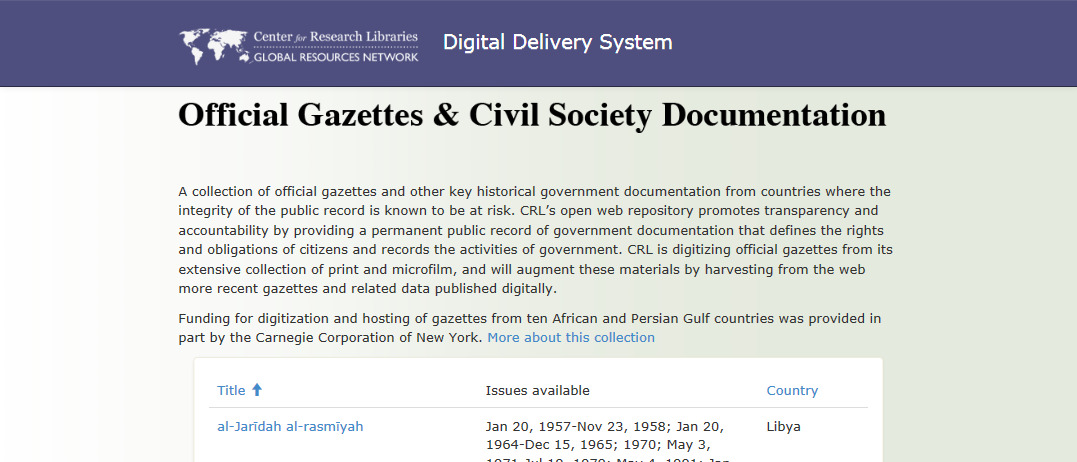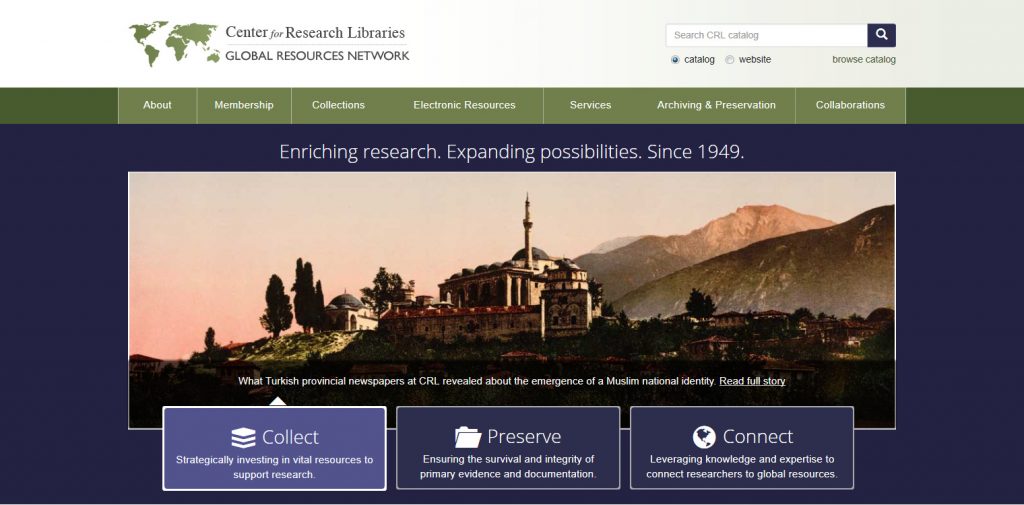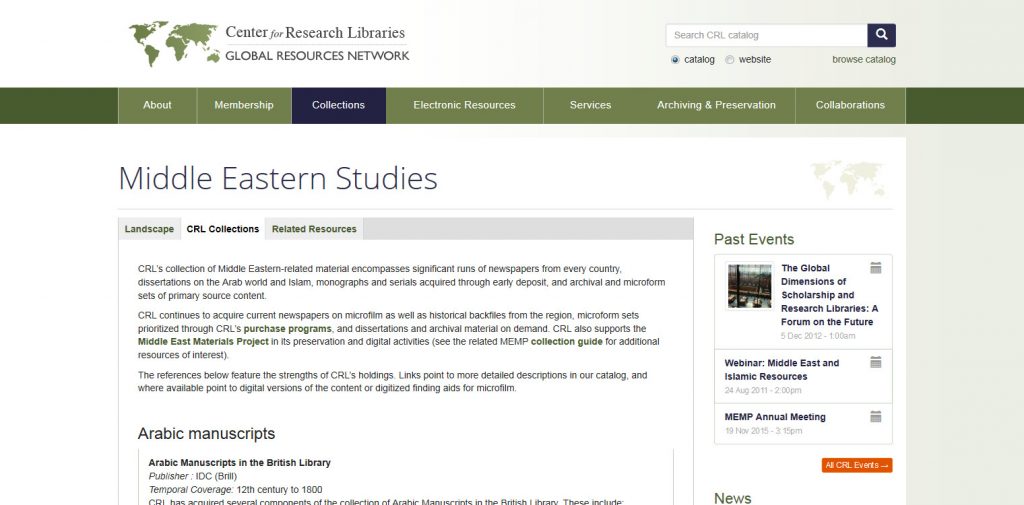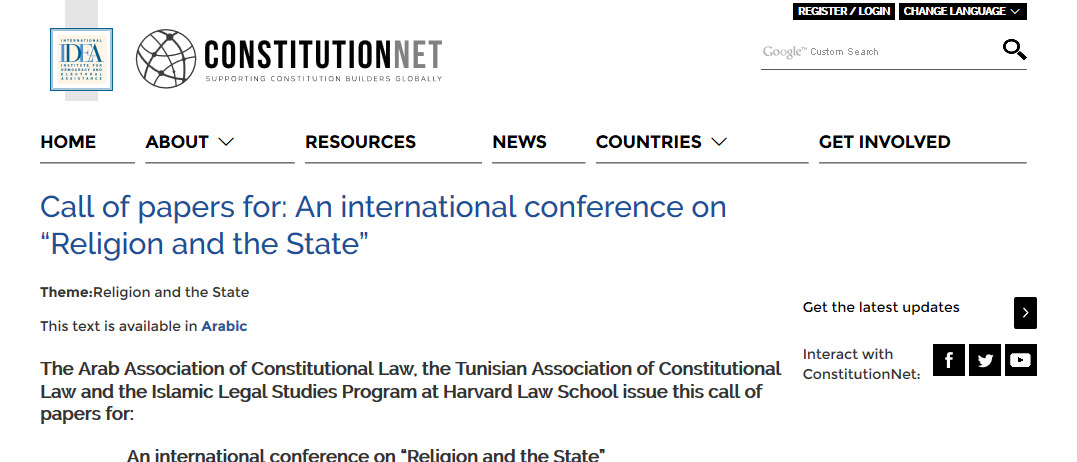 The Arab Association of Constitutional Law and the Tunisian Association of Constitutional Law, with the support of the “Islamic Legal Studies Program: Law and Social Change” at Harvard Law School, will be holding an international conference in Tunisia during 24-25 March 2017. The conference title will be: “Religion and the State”. In order to inform the discussions that will be taking place at the conference, the organisers are commissioning a number of papers, covering the following issues:
The Arab Association of Constitutional Law and the Tunisian Association of Constitutional Law, with the support of the “Islamic Legal Studies Program: Law and Social Change” at Harvard Law School, will be holding an international conference in Tunisia during 24-25 March 2017. The conference title will be: “Religion and the State”. In order to inform the discussions that will be taking place at the conference, the organisers are commissioning a number of papers, covering the following issues:
1. Islam and the State
1.1 Post-2011 constitutional negotiations: Since 2011, the debates that took place over the role of Islam in Arab constitutions have frequently been controversial. This paper should investigate the different methods that were used in the constitution-drafting processes. What are the constitutional options available to Muslim-majority countries in successfully negotiating this issue?
1.2 Secularism, Islam and constitutional law: This paper should survey whether constitutions in Muslim-majority countries currently feature or should feature counter-majoritarian safeguards designed to counteract the potential for theocratic encroachment. It should also examine what the purpose of such safeguards should be, and in particular whether they can serve the purpose of transitioning towards state secularism within these countries’ constitutions or separating religion and politics. The paper should also discuss how the relationship between religion and state is worded in comparative practice, particularly to protect state institutions and citizens’ rights from encroachment by religion.
1.3 Islam, democracy and human rights: Most muslim-majority states officially recognise Islam as the state religion and also enshrine liberal democratic principles within their constitutions, even as the larger debate over their compatibility continues. This paper should assess a) the empirical relation between Islamist governance and human rights and/or b) interpretive approaches that have been invoked at times by various state actors in order to reconcile the two.
2. Islamic Constitutionalism
2.1 Islamic lawmaking: Many Islamic constitutions include a clause establishing “shari’a” or “principles of shari’a” as a/the primary source of legislation. This paper should discuss how legislatures and other lawmaking bodies have interpreted this mandate and how they have translated shari’a and the various schools of shari’a thought (madhahib) into unified, civic codes of law.
2.2 Judicial review: Just as it is empowered to review legislation generally for constitutional compliance, the judicial branch is tasked with holding the legislature accountable to shari’a supremacy clauses. In several states, however, the executive reserves the right to restrain or override this power. This paper should explore the methodology, independence, and activism of the judiciary in its exercise of this privilege along with the complementary checks wielded by the political branches. If appropriate, it might compare Islamic judicial review to more conventional forms of constitutional review or comment upon its impact on society.
2.3 The role of religious institutions: Some scholars have argued that Islamic jurists (ulama’) comprise a “fourth branch” of government in states founded upon Islamic principles. Depending on the state, clerics have alternately been granted sweeping executive authority, limited autonomy over certain religious matters adjudicated in specialized courts, or merely an advisory role to lay judges and lawmakers. In what circumstances is it appropriate to either reserve legal issues to the exclusive jurisdiction of the ulama’ or to seek their input?
3. Islam and Social Cohesion
3.1 Religious freedom: This paper should discuss whether full religious freedom and equality is possible under Islamic rule, focusing on the condition of religious minorities and/or secularists. It should confront issues such as communitarian notions of citizenship, vestiges of the Ottoman millet system, blasphemy and apostasy laws, equality before the law, and conflict of religious law.
3.2 Women’s rights: This paper should examine the current status of and prospects for women’s rights under Islamic-influenced constitutional systems, engaging in debates surrounding areas such as family and inheritance law, modesty requirements, and political inclusion. It might also explore the avenues Muslim women have taken to advocate for their rights.
Application instructions
Individuals who are interested in participating in the conference must submit an abstract in accordance with the following instructions:
- If you are interested in carrying out any of the above studies, please send an abstract to conferences@dustour.org no later than 17:00 Tunis time on 18 November 2016. Abstracts should be no longer than 500 words, which includes the research methodology and the main research question that will be addressed in the study. Applicants should also send their CVs, including a list of publications, with their abstracts.
- Abstracts may be submitted by individuals, co-authors or institutions. Membership in the Arab Association of Constitutional Law is not a requirement.
- Abstracts and papers are strongly encouraged to adopt a comparative approach. Abstracts and papers that focus on individual countries will still be considered.
- Individuals from outside the Arab region who wish to submit an abstract that focuses on developments that are taking place outside the Arab region are encouraged to do so, while ensuring that all discussions are aimed towards furthering and enriching the discussion in the Arab region on the topics set out above.
- Abstracts may be submitted in Arabic or English.
The individuals who will be selected to carry out the above studies will be required to prepare oral presentations summarizing their findings at the conference.
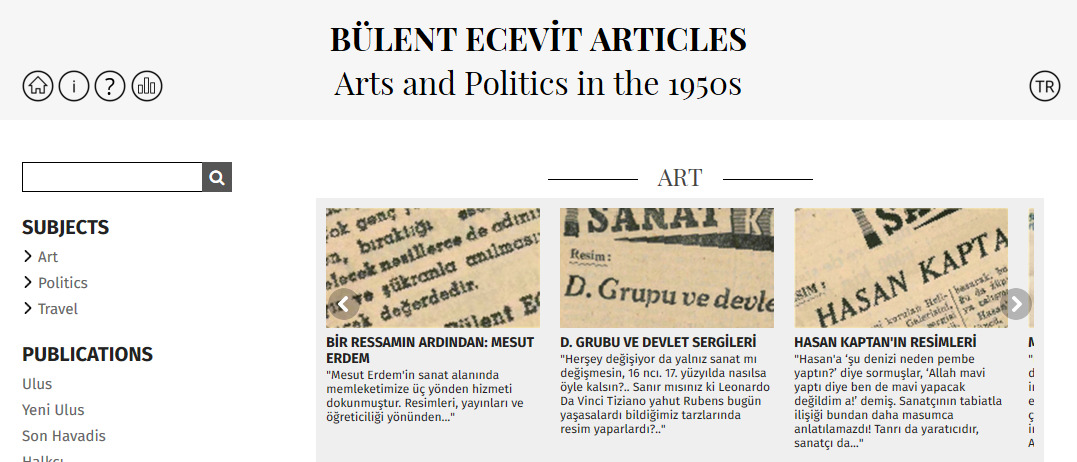 The Bülent Ecevit articles database includes 1,500 Turkish- and English-language articles written by Bülent Ecevit between 1950 and 1961, most of them published in the prominent daily paper Ulus. While much is known of Ecevit’s long career as a statesman–beginning with his service as Minister of Labor 1961 and lasting well into the 2000s–this early chapter in his life remains largely unknown. Yet the cultural commentary, art criticism, political analyses and travel writings that he produced in the 1950s constitute an extraordinarily prolific and consistent body of work on the importance of civic culture and democracy. The columns reveal the seeds of his later political thought, as well as giving a new perspective on the importance of the arts to his intellectual life.
The Bülent Ecevit articles database includes 1,500 Turkish- and English-language articles written by Bülent Ecevit between 1950 and 1961, most of them published in the prominent daily paper Ulus. While much is known of Ecevit’s long career as a statesman–beginning with his service as Minister of Labor 1961 and lasting well into the 2000s–this early chapter in his life remains largely unknown. Yet the cultural commentary, art criticism, political analyses and travel writings that he produced in the 1950s constitute an extraordinarily prolific and consistent body of work on the importance of civic culture and democracy. The columns reveal the seeds of his later political thought, as well as giving a new perspective on the importance of the arts to his intellectual life.

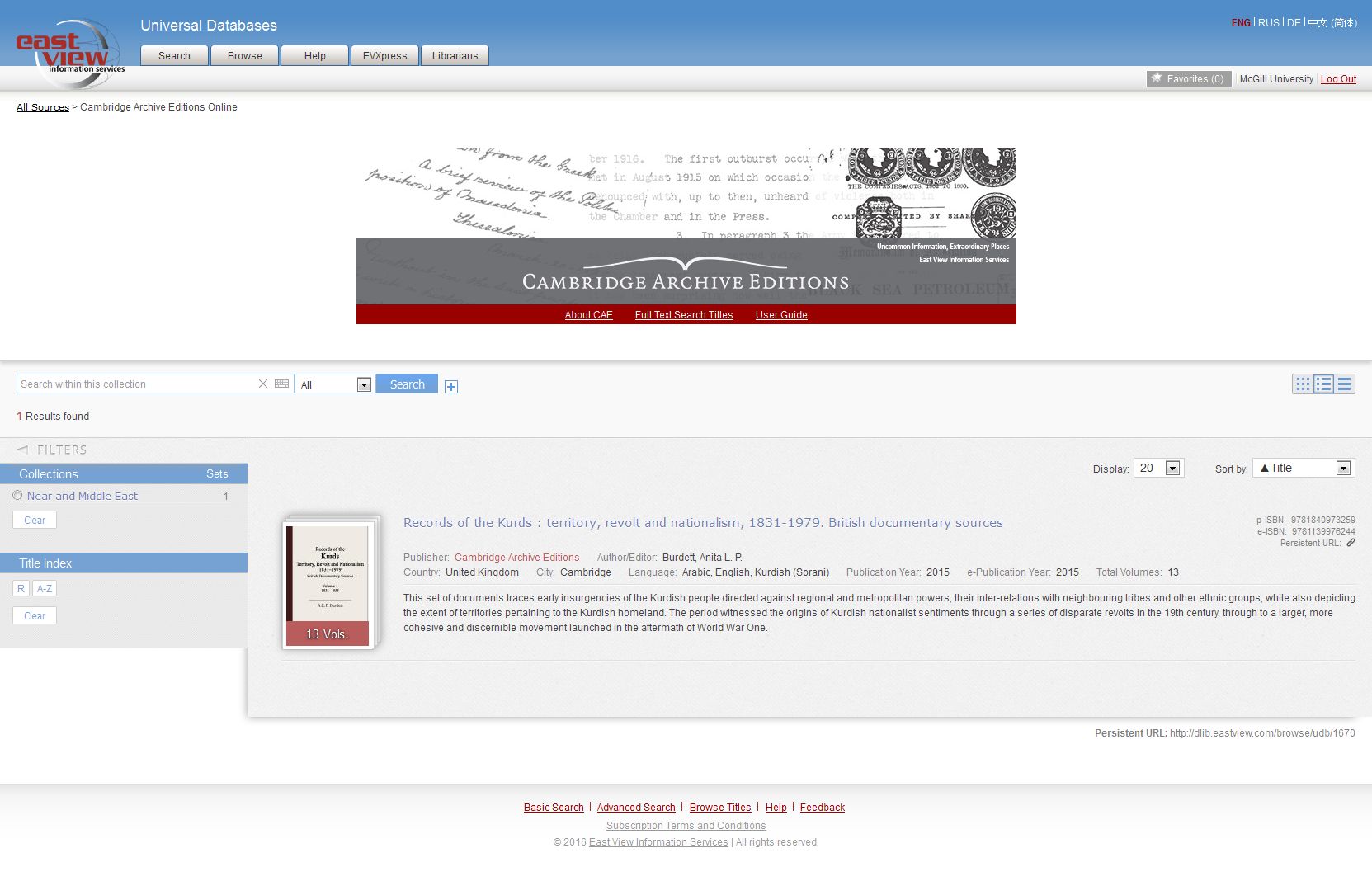
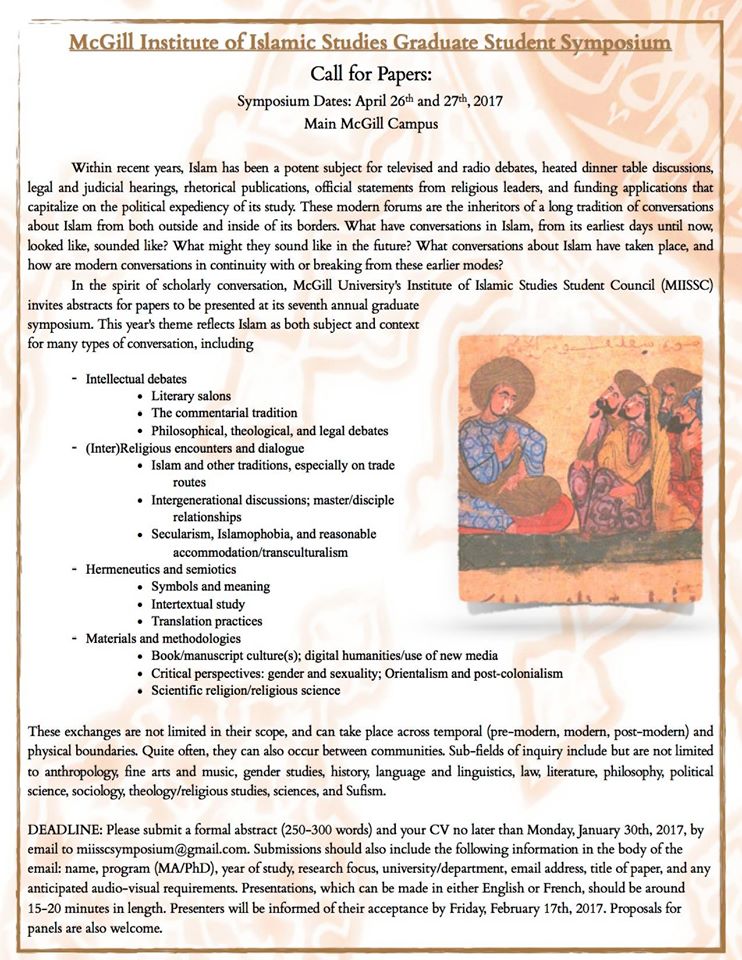
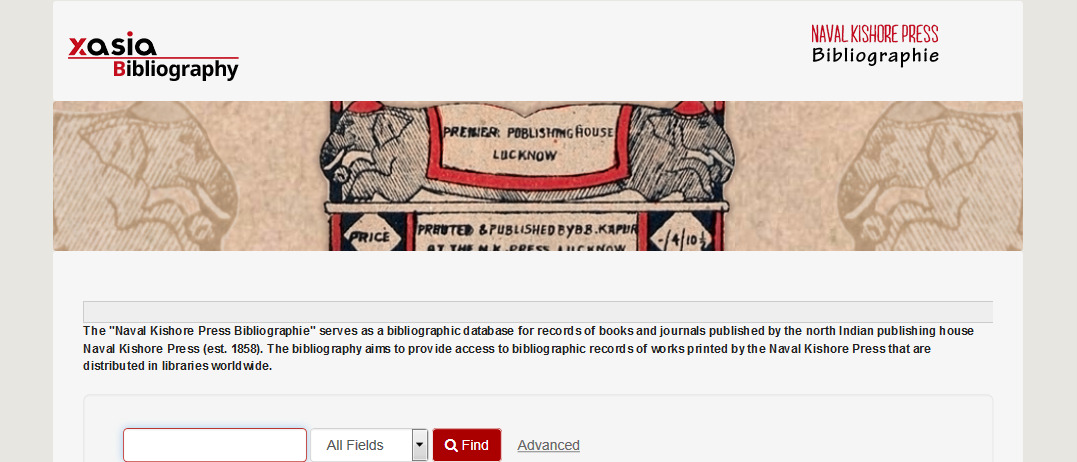

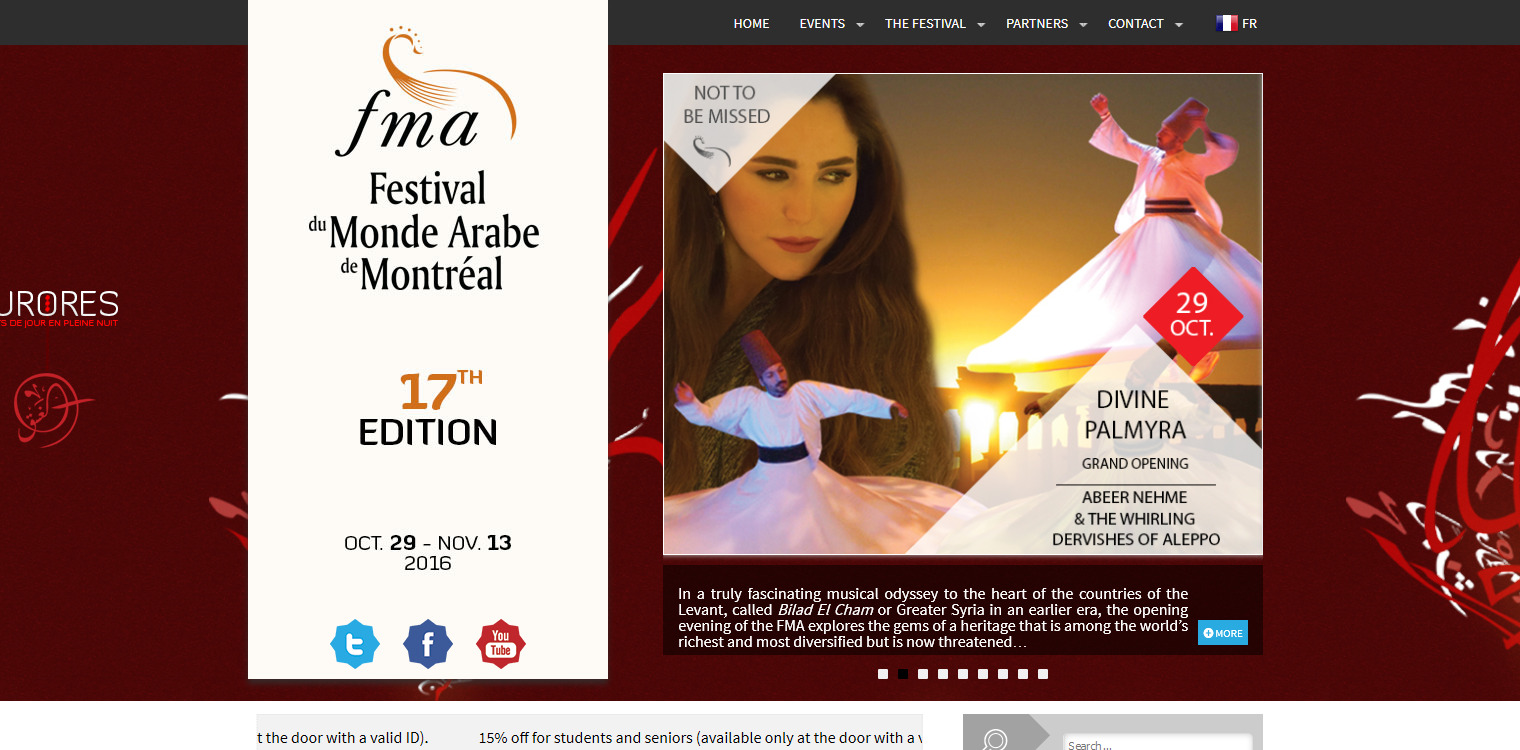
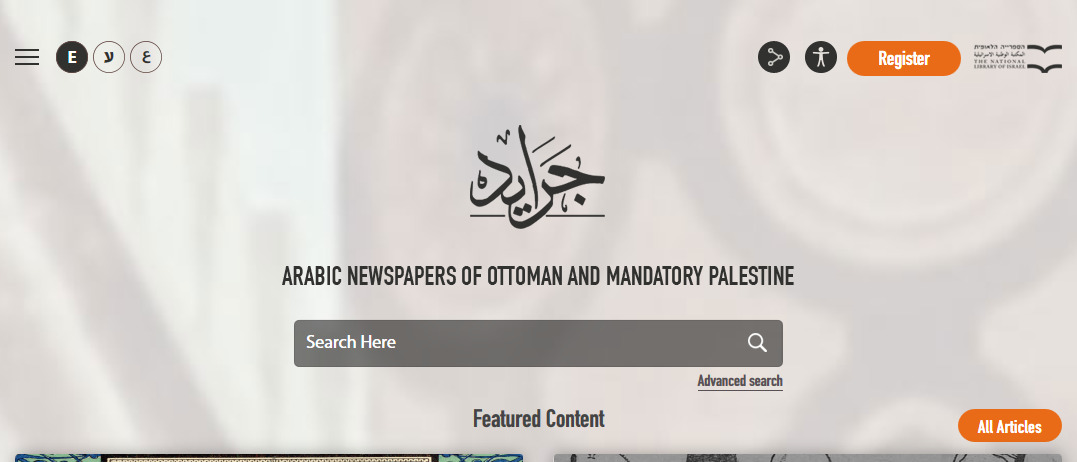 جرائد [Jara’id]
جرائد [Jara’id]